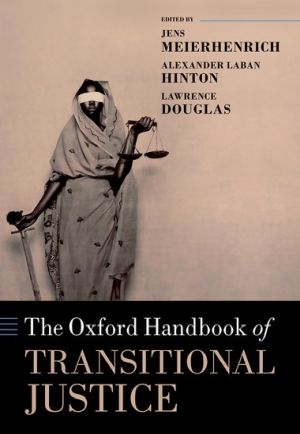We are now closed for the Christmas and New Year period, returning on Monday 5th January 2026. Orders placed during this time will be processed upon our return on 5th January.

The Oxford Handbook of Transitional Justice is an authoritative guide to the rapidly growing domain of transitional justice-the practices and processes of reckoning pursued in the aftermath of historic injustice. Since the neologism's coining in the late 1990s, “transitional justice” has become one of the 21st century's most influential practices of international humanitarianism. However, transitional justice projects often conceal the very violence they are intended to address - or even inflict further violence on victims of atrocities.
Across 48 genre-bending chapters, the Handbook explores, articulates, and advances a multifaceted critique of transitional justice. Ranging innovatively across space and time, it interrogates the nature and legacies of the “justice cascade” that the prosecution of international crimes is said to have inspired. An interdisciplinary cast of leading scholars questions the meaning and efficacy of transitional justice's modalities, which range from archives to courts; from memorials to reparations. In so doing, this volume's authors critically challenge the panglossian orthodoxies that have accumulated and ossified around efforts to come to terms with violent pasts, from colonialism to genocide. This global endeavor is not one of tear-down, however. Rather, it points toward a reimagined project that is more clear-eyed about the promises of transitional justice-and its inherent limits.
A definitive work on the subject, The Oxford Handbook of Transitional Justice is essential reading for students, scholars, and practitioners interested in practices of reckoning.